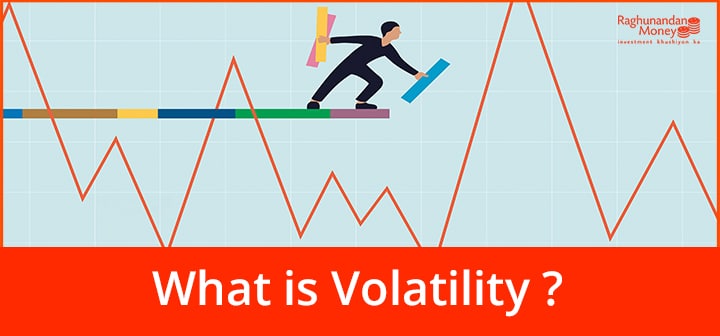Published : July 15, 2021

It is a measure of the rate of changes in the price of the underlying stock over time. It shows the level of risk linked with the price changes of the underlying stock. Investors and traders calculate the volatility of underlying to check past changes in the prices to predict their future movements. It can be calculated either by using the standard deviation or beta of the underlying. The standard deviation is a measure of the amount of variation or dispersion of underlying’s prices. Beta calculates the volatility of underlying as compared to the overall market. Beta can also be calculated by doing regression analysis. Generally, volatility can be found in most traded indices or stocks such as CNX Bank, NSE Index, CNX FIN, etc.
There are mainly 5 types of volatility Price, Stock, Historical, Market, and Implied Volatility. Let’s understand each type in detail.
Price Volatility occurs if there is a strong swing in demand and supply. There are mainly three reasons for price volatility. The first is seasonality, which occurs in a particular season. If we talk about agricultural prices, they tend to decrease during the harvesting season and an increment in prices of commodities is observed when the sowing season starts.
The second reason is whether, if we talk about the same factor agriculture; it depends on the weather if the weather supports crops then the production of those crops increases which results in lower prices.
The third reason is emotions, when the traders trade on their emotions they increase the volatility.
Beta is the measurement of stock volatility; it explains how your stock correlated with the index. If the stock has a beta value of 1, it tends to change with the change in the index. If the beta value of the stock is less than 1, it happens to move lower with respect to the index. In the case of high beta, the stock tends to increase more the movement of the index.
It measures the past volatility of a stock over a long period of time. If a particular stock has been more volatile in the past, it is supposed to be more volatile in the future. More volatility makes the stock less preferred to investors as there is risk associated with highly volatile stock and it must be bought for the long term to get the desired return.
It is the velocity of a price difference for any market such as forex, stocks, and commodities. If the volatility of the market is increased then it is a sign that the market top or bottom is about to happen. There is a lot of uncertainty in the market as bullish traders take the market to new highs on good news and the bearish traders try to take the market to new lows on the bad news. India VIX is the measure of the market’s expectation of volatility over the near term.
IV is very useful for options traders, if the IV of an underlying is increasing then the increment in option prices is observed. On the other hand, if the IV of an underlying is decreasing the reduction in option prices is observed.
The volatility of any underlying really helps the traders to understand the behavior of the market. It is critically important for traders to understand the market or underlying to take the benefit of a volatile market.

Enjoy flexible trading limits at
lowest brokerage rates ?
Open Your Investments Account Now
0Account Opening Charges
Life Time Demat AMC
Brokerage







Ensure the security of your investments by updating your nominee details in your trading & demat account online. It’s quick and hassle-free!
📌 Act Now to Stay Compliant
For assistance, contact our Customer Care at 0562‑4266666 and email askus@rmoneyindia.com.

IT'S TIME TO HAVE SOME FUN!
Your family deserves this time more than we do.
Share happiness with your family today & come back soon. We will be right here.
Investment to ek bahana hai,
humein to khushiyon ko badhana hai.
E-mail
askus@rmoneyindia.com
Customer Care
+91-9568654321